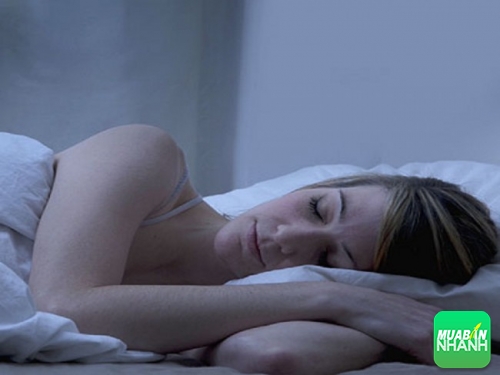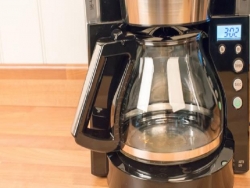31 Days to a Night’s Sleep

Are you sleepy? Or tired?
They may sound the same, but they are not. Sleepy means you yawn or nod off during the day, while being tired means you have trouble focusing and constantly feel “out of it.” When you talk to your doctor, carefully describe how you feel—it’s often the key to diagnosing a sleep disorder.
Add up the hours
There’s no single sum that’s right for everyone, and while most people function best on seven or eight hours of sleep, some require just six. And it’s even possible to get too much sleep. The keys to finding your ideal cycle? Quality, quantity, and consistency.
Consider buying a new mattress
Do you have trouble falling asleep? Do you wake up with lower back pain? If your mattress is decades old, you shouldn’t be surprised! Since you spend one-third of your life in bed, choose the right mattress wisely. Check out these six shopping tips.
Slip on a pair of socks
Cold feet may be keeping you awake without you even realizing it, so try wearing socks to bed. That extra layer of warmth can improve circulation, which can help you fall asleep faster.
Take a hot bath
Your body temperature naturally starts to dip about two hours before bedtime. By soaking in a hot tub for 20 to 35 minutes, your temperature rises and then rapidly cools down when you get out, which can help prepare your body for sleep. By bathing, you’re creating a steeper temperature drop, which can lull you into a deep sleep.
Skip the after-dinner drink
While you may feel groggy after a glass of Sauvignon Blanc, alcohol can actually disrupt your sleep later in the night. So if you want some quality shut-eye, skip the cocktail and choose hot (decaf!) tea instead.
Check for sneaky sources of caffeine
You know not to overdo it on coffee, but switching to decaf won’t necessarily keep you safe from sleep problems either. A 2007 study found that “decaffeinated” coffees sold at several chain restaurants contained about the same amount of caffeine as a soda. If you’re particularly sensitive, this might trigger sleep problems. And watch chocolate intake—it contains caffeine too. Check out these and other hidden sources of caffeine.
Put down the double latte
A cup of joe—or three—may seem like the best way to get a quick energy boost, but caffeine can stay in your system for 12 hours, making it difficult to fall asleep at night. If you have difficulty sleeping, experts recommend quitting coffee altogether—or at least stopping after your morning cup.
Leave your work at the office
It’s easy to bring home a pile of paperwork or get busy with a stack of bills right before bed, but these tasks require too much concentration late at night. And if you’re frustrated with your job or your finances you won’t be able to relax—so save these tasks for the daytime.
No more naps!
If you aren’t getting enough sleep at night, a quick catnap may seem like a great idea. But squeezing in a little sleep can actually be counterproductive. Unless you have no trouble getting to sleep at night, resist the urge for a midday siesta.
Start a sleep journal
If stress is regularly keeping you awake at night, deal with your issues during the day by writing them down. Spend half an hour with your worry journal several hours before bedtime, listing bothersome issues on the left side of the page, and ways you can solve those issues on the right side. Then close the book and vow to put off worrying about these issues until the following day.
Steer clear of heavy spices
Eating spicy foods raises your body’s temperature—and it can also give you heartburn, which only gets worse when you lie down. Plus, your body craves coolness during sleep, so that tasty taco or heavy Indian meal might kill your desire to rest. Save your spicy favorites for lunchtime and eat something milder at night.
Cover up your clock
When you can’t get to sleep, the last thing you want to watch are the hours ticking by. Keeping your eye on the clock can make you anxious—making it even more difficult to fall asleep. So put your clock on the floor, out of eyesight, or turn it toward the wall.
Count sheep
There’s a reason this is a sleep stereotype—it works! (Although it doesn’t have to be sheep.) Start by gazing upward while in bed—a little eyestrain will help you relax. Take deep breaths and imagine yourself walking down a flight of stairs as you count backwards.
Practice abdominal breathing
Breathing from your abdomen—whether during the day or in bed at night—can help you relax. Begin by sitting or lying in bed, and place your hands on your belly. Focus on how your hands gently move with each breath. This will take your mind off your busy thoughts.
No books in bed
You may love breaking open the newest best seller before bedtime, but if this habit is keeping you up—hey, sometimes it’s more fun than sleeping—you should do your reading elsewhere. After all, some books are nearly impossible to put down, even when you’re desperate for shut-eye.
Consider when you get intimate
The bedroom is for the two S’s—sex and sleep—but getting intimate right before bed may make you more revved than relaxed, which is especially true for women. If you have a hard time getting to sleep after having sex, you may want to opt for intimacy in the morning instead.
Take a cue from your favorite stars
They’re rich, they’re famous—who cares if they sleep, right? Well all that late-night partying and constant traveling often means celebrities don’t make much time for sleep. These 25 stars are famous for their careers and their sleep cycles, and when it comes to catching your own z’s, there’s something you can learn from each of them.
Don’t brush off fatigue
If you still feel groggy after eight hours of rest, you may have a serious sleep problem. During quality sleep, your body alternates between light and deep periods, so you should wake up feeling refreshed. If this consistently isn’t the case, something is preventing your body and brain from getting the rest you need.
Buy a dog bed
You may love your dog nearly as much as you love your children, but your kids probably sleep in their own bed—and your pup should too. A 2002 survey found that 52% of pet owners reported sleep disturbance on a nightly basis, mainly because their pet slept in their bed too.
Don’t ignore the tingly feeling in your limbs
You shouldn’t worry about every little twitch or nighttime cramp, but if you have the constant urge to move your legs—and it only gets worse at night—you may have restless legs syndrome.
See the right specialist
You can’t stop sneezing, you see the allergist; vision problems land you at the eye doctor’s; but where do you go when you have a sleep problem? Start with your primary care doctor, who can screen you for a sleep disorder. If the problem runs deeper, he or she can help you find a certified sleep specialist.
Take a quiz
Can’t seem to stay awake through your afternoon meetings—even after two cups of coffee? You may have a sleep disorder. The Epworth Sleepiness Scale can’t give you a diagnosis, but it can help you determine whether you should see a doctor. All you have to do is answer a few questions.
Check your medicine cabinet
Both prescription and over-the-counter medications can disrupt your sleep cycle, particularly if you take them close to bedtime. Are you having a hard time sleeping or experiencing extreme fatigue? Check this list to see if your medication may be to blame.
Chill out!
It’s hard not to lie awake at night analyzing money or marital woes. These stressful situations can kick-start bouts of insomnia that can turn into a long-term problem. The solution? A relaxing bedtime yoga routine that lulls you to sleep. Check out these easy moves for a more restful night.
Give your TV the boot
No matter how much you love late-night television, Leno isn’t helping you to slumber. The cardinal rule of sleep hygiene is to save your bedroom for sleep and sex only. So cozy up with your favorite shows on the couch—not under the covers.
Focus on feng shui
It’s hard to nod off when you’re wedged between your clean (and unfolded) laundry pile, your laptop, and your clutter. The first step to a better night’s sleep? Clean up the clutter! Then try these six other feng shui tips for a more harmonious bedroom.
Go natural
Before you rush to pop an over-the-counter pill, consider some natural remedies that may help you relax and sleep through the night. They may have fewer side effects than some OTC options.
Talk to your partner
If you have no trouble falling asleep every night and yet you feel exhausted during the day, you may have sleep apnea. It’s the most underdiagnosed sleep disorder in the country, and it’s also the most dangerous. If you constantly feel run-down and your partner complains about your chain saw—er, snore—head straight to a sleep specialist.
Lay out your clothes
Sure, this may hearken back to your grade school days, but if you get into the habit, laying out the next day’s outfit can be a bedtime ritual that helps your body recognize it’s time to go to sleep.
See more: http://usready.com/health.html
Posted by Hữu Lợi Tags: A night to sleep, health, Sleep, your sleep trouble



















